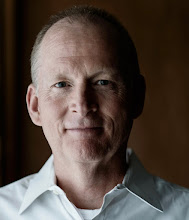 I was cleaning out the pump sump of our pond yesterday, and who should be swimming around in the murky waters of the sump, but one of our koi. Koi are a Japanese version of goldfish... picture your American fishbowl-variety goldfish on steroids, and that's koi.
I was cleaning out the pump sump of our pond yesterday, and who should be swimming around in the murky waters of the sump, but one of our koi. Koi are a Japanese version of goldfish... picture your American fishbowl-variety goldfish on steroids, and that's koi.This adventurous, but foolhardy, koi must have been on something as he swam through the pump sump's tiny flap-door into the aquatic version of what should have been the land of certain death. Fortuitously for this flummoxed fish, it was time for me to clean-out the sump, and so his nearly-cooked goose... uhh, gills... was/were saved. Back in the safe confines of the pond, he flipped twice and darted off to rejoin his koi mates.
I'm thinking if Jesus has been helping me clean-out the sump (I'm picturing Jesus squatting alongside me with his sleeves rolled up... maybe even offering to do the dirtiest of the work and stick his hands down in the muck), he'd have found a parable in the actions of this cruising carp (koi are members of the carp family).
Jesus might have pointed out that those off-limit things of life (we're talking sin), which often look so easy and enticing, are frequently deadly in their consequences... deadly to our reputations, our futures, our families. And while the way into such situations may be easy-- exiting is an entirely different ballgame (Yep, I think Jesus would have tossed in a sports reference). Wiping his hands on his pants, Jesus might have concluded the parable of the koi by reminding me that only by the grace of our gracious Father do we find hope, redemption, and perhaps rescue, in such situations.
And then Jesus probably would have said, "Let's go wash our hands and get this fish goo off of us, and then let's go have some lunch."
That Jesus... he's such a cool guy!































